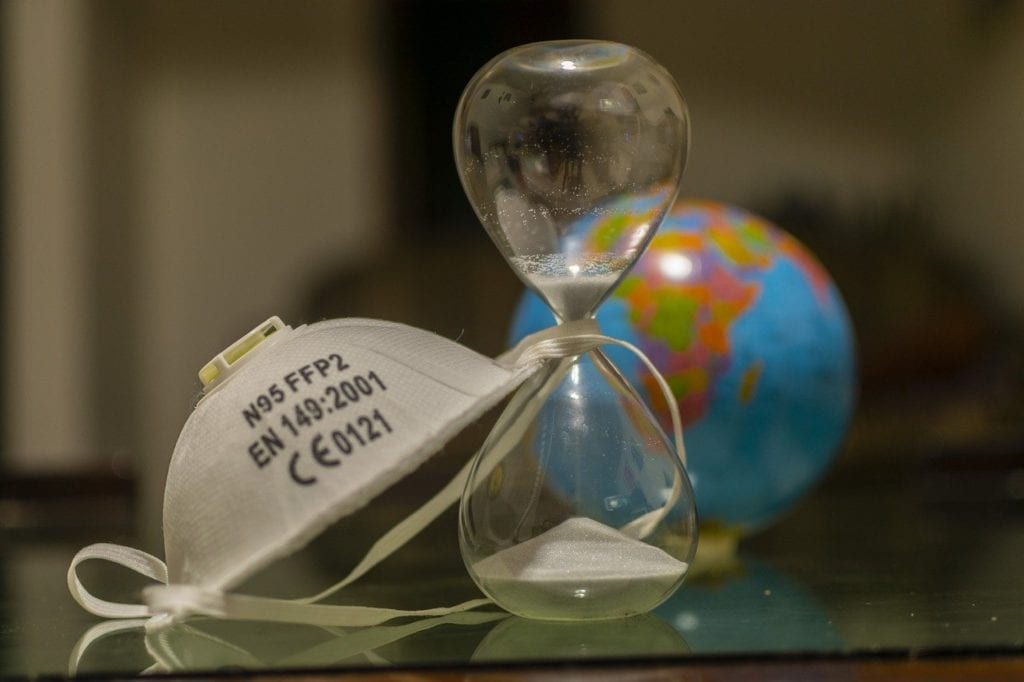President Donald Trump invoked the Defense Production Act of 1950 to direct the multinational conglomerate 3M to cease the exportation of N95 respirator masks due to the coronavirus crisis.

The decision followed a segment of Tucker Carlson’s show on Fox News highlighting the story of Jared Moskowitz, the director of the Florida Division of Emergency Management.
During his interview, Moskowitz said that 3M would not let him buy a large quantity of the respirator masks because they were being shipped abroad.
“What I asked 3M is that, are they aware that their authorized distributors — U.S. companies — are telling me that the reason our orders are being pushed down is because foreign companies are showing up with cash to purchase the orders?” Moskowitz told Carlson.
In light of this news, Trump decided to pressure 3M to boost its distribution of respirator masks to the American market, using the COVID-19 pandemic as an excuse.
“We hit 3M hard today after seeing what they were doing with their Masks,” Trump tweeted. “‘P Act’ all the way. Big surprise to many in government as to what they were doing—will have a big price to pay!”
For its part, 3M told media outlets that meeting the demand for masks prompted by how governments across the globe are responding to reported cases of coronavirus has not been easy. As a result, Trump managed to force 3M to redirect some of the shipments back to American soil — but not all.
While this action was praised by some, it didn’t come as a surprise to proponents of free markets. After all, there is a lot more to this story than what was on display during Carlson’s show.
Monopolies, Shortages, & High Costs
Considering that the N95 masks are treated as essential equipment for medical professionals dealing with potentially contagious patients, Kentucky Governor Andy Beshear told news outlets that if 3M simply can’t meet the demand it should consider dropping its hold on the patent of the respirator device.
Despite defending the broadening of the N95 mask production, Beshear stopped short of defending an end to patent protection altogether, highlighting that freeing other companies from liability if they sought to produce the same masks should be limited to this particular crisis.
“The procurement is incredibly difficult, as is the manufacture because it’s under patent. I’d like to see the people with that patent, which is 3M, provide that to the nation under a license for this period of time,” he said.
“I believe it’s their patriotic duty, and they should put it out there so everybody else can manufacture it.”
What the Kentucky governor may have not realized is just how many more lives would be saved under different circumstances if companies like 3M didn’t hold a government-backed right to produce these items.
Unlike what proponents of intellectual property laws may suggest, Dr. Timothy Farrell explained in this Mises Institute article that patents aren’t necessary to help boost innovation in the healthcare field.
“Even where new drugs could be reverse-engineered and copied, innovation could still be rewarded in a world without patent laws.”
As a matter of fact, government agencies such as the Food and Drug Administration (FDA), which are in charge of securing patents such as the one owned by 3M, are the ones that should be under heightened scrutiny as people in America struggle to find N95 masks.
If it weren’t for the added costs imposed by the process of getting the FDA to approve drugs and medical devices, as well as the added taxes and regulations, manufacturers of both drugs and life-saving devices wouldn’t have an opportunity to artificially limit the supply by charging higher prices and keeping competitors from developing similar and more affordable products, as explained by patent law expert Stephan Kinsella.
If government agencies did not give companies like 3M highly lucrative incentives to monopolize the production of said masks, we might have never seen a real global shortage in light of COVID-19. Why not look at this problem and use it as a means to explore how much better prepared we would be for something similar in the future by just dropping the legal barriers keeping competitors from developing N95 masks?

























